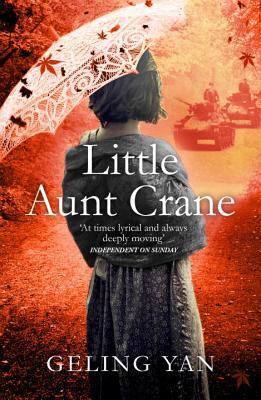A story from China in the chaotic 20th century that starts brutal, yet becomes more fragile and delicate, chapter by chapter. And when the tale is through, you’ll love Duohe, Erhai, and Xiaohuan, and you’ll love mantou and noodles, or something simple as an egg, touching the fabric of your shirt.
Little Aunt Crane (It’s some of the best character building I’ve ever seen in a book, each person so vastly different yet real. It’s also one of the rare detailed accounts (which I’ve read) of what life in China from the 50s to 70s must have been, history told through an ordinary person.
Like all good literature, it’s about what it means to be human — and expands our capacity for empathy in all its variety; love, anger, jealousy, and family. You can identify with them, and if not as least emphasize with them. The big lines of the history books we know are obvious, but we even get to read — feel — the detail of the fog or how pants are ironed, the hairs on someone’s body. I’ve devoured these pages in the last few nights, and now I’m sad the story has come to end.
